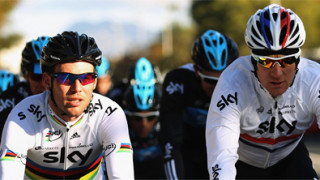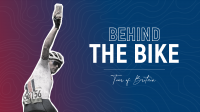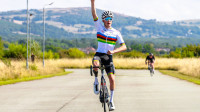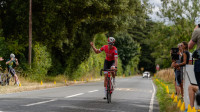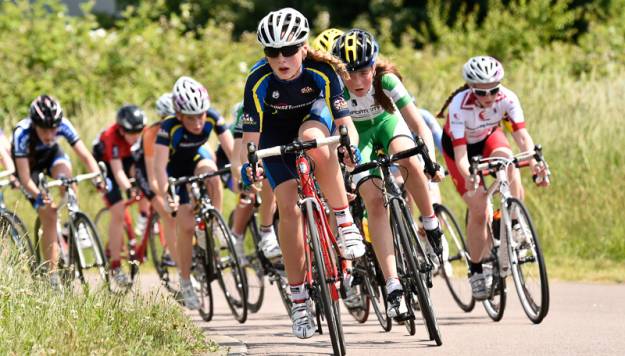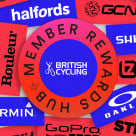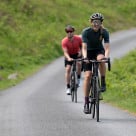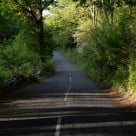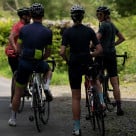With the for the Tour de France, we speak to Team Principal Dave Brailsford about the preparations for Sky’s 2012 assault and look at the key stages en-route where the race may be won or lost.
Dave Brailsford speaks ahead of the Tour de France from British Cycling on Vimeo.
With Bradley Wiggins in superb form after stage race victories in Paris-Nice, Romandie and the Dauphine and Mark Cavendish impressive in the Giro and the recent Ster ZLM Toer, the team faces a war on two fronts when the race commences on 30 June with the 6.4km prologue time trial in Liege.
Should Wiggins win the opening time trial, he and the team may choose to defend the yellow jersey through the first week of flat and rolling stages in Belgium and northern France. This is a scenario in which Wiggins and the team are well-practised, through stage race victories in the lead-up to July. “If you’re going to defend the yellow jersey then there’s only one way to really get confident in doing that and that’s by doing it on a regular basis,” explained Brailsford in reference to Wiggins’ historic Dauphine defence. “The more you do it, the more situations you get exposed to, the more comfortable you become in managing those situations - so you keep calm under pressure, stick together as a unit, and you build confidence in the team.”
The Tour is notorious for throwing up surprises on the opening week of flat stages, which look innocuous enough on paper, but seldom pass without incident. Stage Two from Vise to Tournai may provide Cavendish and the team with their first sprint win opportunity, and the first test of Team Sky’s ability to fight on two fronts; for the yellow and green jersey. Brailsford is however ready to orchestrate a two pronged attack on the 2012 Tour; “I think it’s very important each rider understands how we’re going to approach each stage, what the game plan is, what’s expected of them and that will allow them to commit with total clarity to the role.”
Should the passage from Liege to Metz go without drama, Team Sky’s GC assault will enter a critical week-long phase beginning on 7 July, where the race enters the Vosges Mountains before the crucial first individual time trial, a 41.5km effort from Arc-et-Senans to Besançon. Wiggins’ 2012 victories so far have been largely cemented on his outstanding time trialling ability and it is expected that the rangy Londoner will make his mark in Besancon on Monday 9 July.
Above: Brailsford aims to orchestrate an historic, two-pronged assault headed by Cavendish and Wiggins.
Following a rest day, the drama ramps up, quite literally, when the race enters the high mountains for two stages. The first, from Mâcon to Bellegarde-sur-Valserine takes in the Haute Categorie climb of le Col de Grand Colombier. The second, shorter and tougher includes the Haute Categorie climbs of the Col de Madelaine, the Croix de Fer and a mountain top finish on the 1st category climb of La Toussuire. Wiggins and Froome proved their ability to match the world’s best climbers in the 2011 Vuelta, while Wiggins’ form in the predominantly mountainous Criterium de Dauphine shows that he can police attacks, limit losses and create pressure of his own in the rarefied conditions of the Jura, Alps and Pyrenees. It is perhaps easy to forget that the sight of Brits competing consistently at highest level on the road is new ground and that 2012 represents a huge opportunity for a quantum leap. “Bradley’s in great shape, the team’s in great shape so we can go into the race with some real ambition,” said Brailsford, before continuing – “It wasn’t so long ago that we stated the aim of trying to be competitive for the Tour de France.
“I think now finally we’re really there – I think we were there last season but obviously Bradley crashed. But this time we’ve got Mark, we’ve got Bradley and we’ve got Froome – we’ve got a lot of riders that can perform at the highest level so it’s exciting times.”
After Wiggins and the team descend from the high mountains, there’s little respite as the race heads south, with just one flat stage to Cap d’Agde before a mountainous stage from Limoux to Foix, featuring two category one climbs including the Mur de Péguère. With its 14% ramps, the Mur may suit the peloton’s punchier, attacking riders over Wiggins’ preference for a consistently high-paced climbing style.
Sandwiched between the Pyrenean mountain stages is the 158.5km stage to Pau, which will give Cavendish and other sprinters who have survived the mountains a chance for a bunch gallop. However, the race’s pendulum will once more swing towards the yellow jersey battle with two brutal mountain stages that will test the team’s fitness and organisation to the full. The first, from Pau to Bagneres, contains four daunting icons of Le Tour – the Aubisque (HC), the Tourmalet (HC), the Col d’Aspin (1st) and the Peyresourde (1st).
The Pyrenees are followed by the long, flat stage from Blagnac to Brive-la-Gaillarde, another chance for Cavendish to add to his stage win tally, before the race reaches its final, dramatic act – the 53km time trial from Bonneval to Chartes. If Wiggins emerges from the high mountains in contention this final race of truth will be just that.
Wiggins sealed his Dauphine victory on a time trial of very similar length to the Tour’s final contre-la-montre – a point that Brailsford makes as he prepares to lead his team to Liege – “The Dauphine is a dress rehearsal. There’s a long time trial in the Dauphine, there’s a long time trial in the Tour de France, so I think that will be quite telling.”

